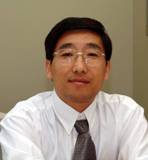Antioxidant and Gene Regulation Lab Pennington Biomedical Research Center (PBRC) Louisiana State University System (LSU) Our research is conducted to understand the cellular and molecular mechanisms of insulin resistance. The study has been performed in 3 mouse model systems: Transgenic mice of NF-kB, pharmacological study of Berberine and sodium butyrate, and mouse surgical model of RYGB. The transgenic studies suggest that adipose tissue expansion induces a local hypoxia response that triggers the chronic inflammation in obesity. The inflammation stimulates energy expenditure in favor of recovery of the energy balance in the body. These conclusions suggest that the chronic inflammation is a compensatory response in obesity to protecte the body. Benefits of the inflammatory response are executed through several coordinated events including inhibition of adipogenesis, promotion of adipocyte lipolysis, stimulation of lipid mobilization, and induction of adipose angiogenesis. This view suggests that the inflammation is not induced to impair systemic insulin sensitivity in the obese condition. Instead, it is generated to protect the body from energy surplus. This interpretation of biological activity of the inflammation is different from the classical view of chronic inflmmation that considers the inflammation as a pure risk factor of insulin sensitivity. Anti-inflammatory therapies have been tested in many clinical trials for improvement of insulin sensitivity in type 2 diabetic patients for more than 20 years. The efficacy was disappointed and the reason was unknown. Our view provides an answer to the poor efficacy. Our view also explains the weight gain in patients under the anti-inflammatory therapies. The pharmacological and surgical models provide consistent results that a negative energy balance is a promising strategy in the treatment of insulin resistance. The results of three model systems support that energy surplus in cells is responsible for systemic insulin resistance. The signaling pathway of energy surplus-induced insulin resistance is under investigation. |
Dr. Jianping Ye, M.D. Professor of Molecular Biology PBRC/LSU 6400 Perkins Road Baton Rouge, LA 70808-4124 Office Phone: (225) 763-3163 Fax: (225) 763-0274 E-Mail: YeJ@pbrc.edu
|
Last Updated On: Thursday, June 10, 2015
